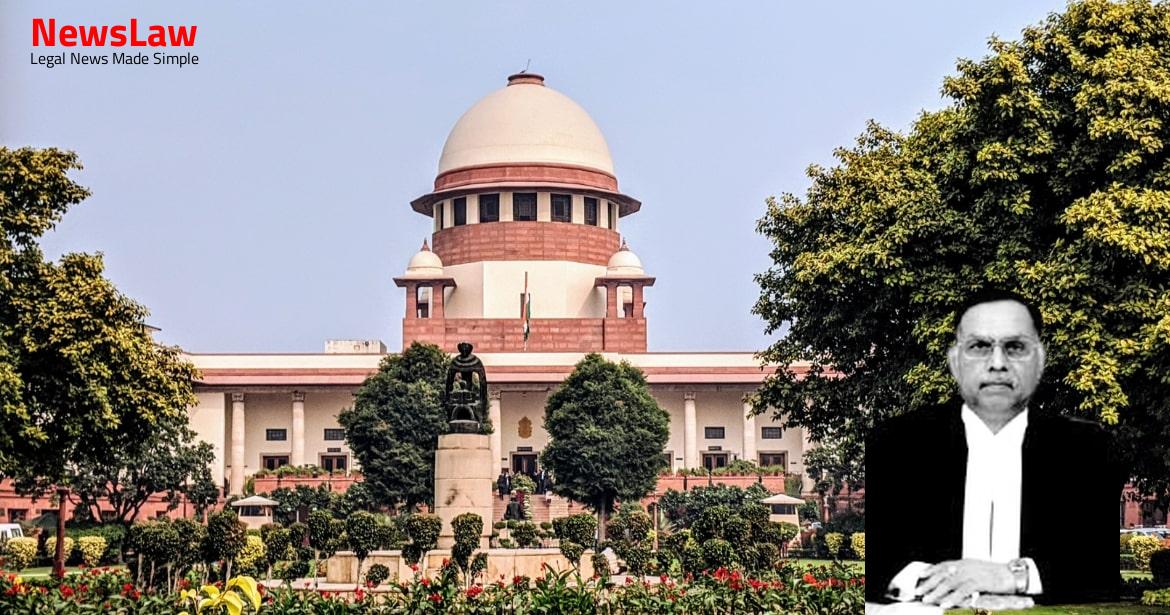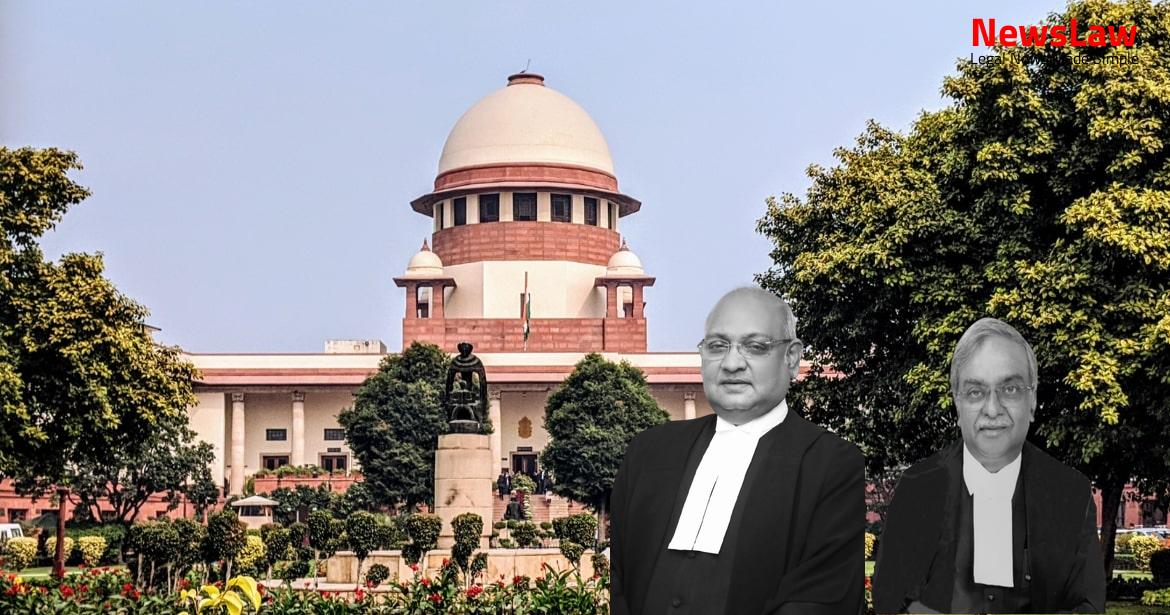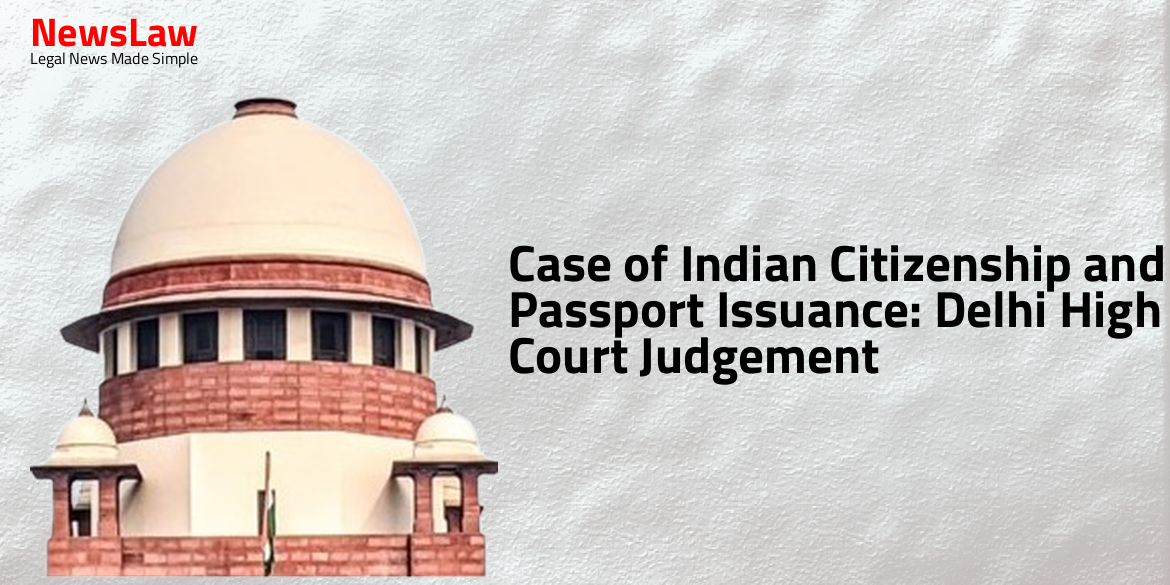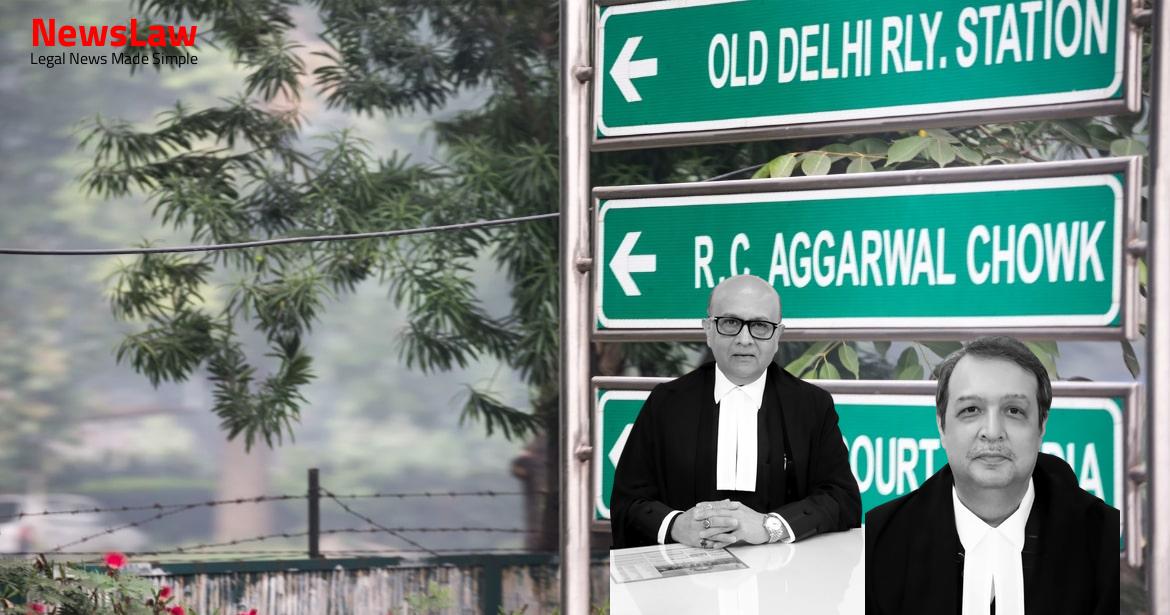Explore the fascinating legal intricacies of a pension entitlement dispute as scrutinized by the High Court in a recent judgment. The court’s meticulous analysis of documentary evidence and strict adherence to pension scheme requirements sheds light on the complexities of pension entitlement in legal proceedings.
Facts
- The appeal filed by the Union of India was dismissed by the Madras High Court (Madurai Bench)
- The judgement and order dated 29.08.2018 was passed in W.A.(MD) NO. 907 of 2018
- The order of the learned Single Judge in W.P.(MD) NO. 17290 of 2017 was confirmed
- 1. The 1st Respondent disposed of the petition on 29.08.2017 by directing the appellant to grant pension under Swatantrata Sainik Samman Pension Scheme.
- 2. The 1st Respondent sent a communication to the appellant requesting pension from 2011 under the scheme due to imprisonment during Quit India Movement.
- 3. The 1st Respondent’s initial application in 1997 was rejected by the appellant in 2004 due to lack of supporting documents.
- 4. The appellant requested completion of required formalities as per the scheme in October 2017.
- 5. A writ petition by the 1st Respondent in 2017 led to directions for pension grant under the scheme.
- 6. The appellant’s writ appeal against the order was dismissed, leading to further dispute.
- 7. Various deficiencies in the initial application, such as unclear certification and lack of NARC from competent authority, were noted by the appellant.
- 8. Allegations made by the appellant were denied by the 1st Respondent.
- 9. The writ petition was disposed of without notice or opportunity for counter affidavit, leading to disputes over pension entitlement.
Also Read: Analysis of Seniority Determination in Armed Forces Personnel Case
Arguments
- Appellant actively participated in Quit India Movement and was sentenced to Alipuram Central Prison for over six months in 1944.
- 1.1
- Appellant raised specific grounds in the appeal including lack of notice in the writ petition and insufficient supporting documents for the pension application.
- 1.2
- First pension application by the respondent in 1997 was forwarded without specific recommendations and later rejected, followed by another application.
- 1.3
- Court disposed of the petition without allowing a counter affidavit to be filed by the appellant.
- 1.4
- Appellant replied to a letter stating compliance with pension scheme requirements by submitting necessary veteran certificates.
- 1.5
- Arguments centered on the appellant’s alleged lethargic approach in processing the pension application and the rejection of the first application.
- 1.6
- Division Bench failed to consider appellant’s grounds and upheld the Single Judge’s decision without valid reasons.
- 1.7
- High Court was criticized for issuing positive directions for pension grant without thorough examination of eligibility criteria.
- Documents already filed are sufficient for pension as per Swatantrata Sainik Samman Pension Scheme
- Appellant was not considering the pension application
- High Court rightly issued directions for grant of pension
- Respondent participated in freedom struggle, suffered losses, and imprisonment during Quit India Movement
- Respondent unduly deprived of entitled pension as per the scheme
- Counsel for Respondent argues no illegality in High Court order, no grounds to interfere
Also Read: Analysis of Circumstantial Evidence in Criminal Conviction
Analysis
- The Division Bench of High Court did not consider various grounds raised by the appellant while confirming the order of the learned Single Judge.
- The 1 Respondent applied for pension in 1997 stating underground participation during Quit India Movement.
- The High Court entertained the 1 Respondent’s petition without giving the appellant a chance to respond.
- The 1 Respondent re-applied for pension in 2017 under the same scheme, leading to a reevaluation of his claim.
- The documentary evidence submitted by the 1 Respondent was deemed insufficient according to the scheme’s requirements.
- Judicial review should not preempt the competent authority’s consideration of the pension application.
- The High Court’s direction to grant pension lacked valid reasons and exceeded its scope.
- The appellant had a stronger position as the 1 Respondent’s initial application had been rejected and was final.
- The 1 Respondent’s second application for pension was made without disclosing the earlier rejection, leading to further complications.
- The High Court’s dismissal of the petition without notice to the appellant was deemed inappropriate given the factual disputes.
- In the case of W.B.Freedom Fighters’ Organization v. Union of India and Others, the Court ruled that when the competent committee rejects applications for lacking required documents, such findings are not considered perverse or unreasonable and should not be interfered with by the Court.
- In the case of Union of India vs Bikash R. Bhowmik and Others, the Court held that pension under the Swatantrata Sainik Samman Pension Scheme of 1980 can only be sanctioned based on the specified proof outlined in the scheme, and no other method can be used.
- Entitlement for pension under the Swatantrata Sainik Samman Pension Scheme of 1980 is determined based on facts and documentary evidence produced in each case
- The judgment relied on by the learned counsel is not applicable in supporting the applicant’s case
Also Read: Constitutional Interpretation on Multi-Member Wards in Municipalities
Decision
- Appeal allowed and judgment dated 29.08.2018 set aside.
- Writ Petition (MD) No.17290 of 2017 stands dismissed.
- No order as to costs.
Case Title: UNION OF INDIA Vs. A. ALAGAM PERUMAL KONE (2021 INSC 109)
Case Number: C.A. No.-000680-000680 / 2021



